It’s Christmas 2020 and Kevin the Carrot is on a mission. Snow swirls, ice glistens and roast turkeys and cold cuts wait on the table, bathed in cosy firelight. The visual symbols of Christmas are all present and correct in the big Aldi seasonal advert, but what pulls them together is the music. A hint of John Williams on a solo horn, a burst of swashbuckling rhythm; symphonic strings as our vegetable hero makes it home. It’s all there, sumptuously scored and precisely gauged to make you feel that in 30 seconds, you’ve experienced an epic. And then, of course, to go out and buy parsnips.
‘I was lucky, because the mood had already been chosen,’ says Guy Farley, the composer who wrote that score. ‘I’d done a previous campaign; and it was such a success that the team at Aldi called again the following year: “Can you record it at Abbey Road? And this time we want Home Alone meets Pirates of the Caribbean.”’ So that — no quibbles, no questions — is exactly what Farley gave them.
The business of writing music to order in an aggressively commercial environment is easily undervalued. Fundamentally, though, it’s closer in spirit to Bach or Mozart (all those weekly cantatas and Salzburg divertimenti) than today’s grant–funded Serious Classical Composer agonising for months over an instantly forgettable Proms commission.
‘Consider what moderation is required to express oneself so briefly,’ wrote Arnold Schoenberg in 1924, ‘… to express a whole novel in a single gesture, a joy in a single indrawn breath.’ Now imagine doing all that and selling groceries at the same time. All year round, composers like Farley craft little symphonies that enter the consciousness, stick in the memory and change their listeners’ actual behaviour. Intel Inside. You Can Do It if You B&Q It. Whoa, Bodyform! For millions, these indestructible scraps of melodic invention are lodged in the ear for life. Who stops to think that a composer actually sat down and wrote them?
John Altman is one of those composers — an industry giant so comfortable with his relative anonymity that he’s called his forthcoming memoir Hidden Man. The joke is that huge tracts of British culture over the past five decades would be unrecognisable without Altman’s work. ‘The Hidden Man’ was Terry Gilliam’s nickname for him, coined after Altman heard a homemade demo of Eric Idle singing to a guitar and realised that with a bit of orchestral know-how, ‘Always Look on the Bright Side of Life’ could become ‘a Busby Berkeley-type extravaganza’. ‘So I did it, and we recorded it at Chappell’s studio on Bond Street, with the Fred Tomlinson Singers. Then I went off and did an advert. If I’d known it was going to be iconic, I would have wallowed in it a bit.’ As well as orchestrating the Pythons, he’s actually there on the soundtrack of
The Life of Brian, whistling the song’s maddeningly jaunty refrain.
And that’s not even a fraction of Altman’s (largely uncredited) catalogue. The tank chase in GoldenEye, the big-band arrangements for Björk’s ‘It’s Oh So Quiet’ and the music for the ship’s band in Titanic — that’s all Altman. Oh, and more TV adverts than he can remember, though he reckons he did at least 4,000 between 1977 and 2017. He arranged a Handel sarabande for Odyssey, the influential 2002 Levi’s ad. ‘The director wanted to use Vivaldi, but John Hegarty, the boss at the agency, wasn’t convinced. He said: “No, it’s too inside the visuals, and what we need is an overview”. He came up with the Handel, I orchestrated it to the picture, and he was absolutely right.’
Other briefs were less subtle. Remember Sheilas’ Wheels, with its camp retro stylings and close-harmony girl band? ‘The whole thing about a catchy tune is that it’s not necessarily catchy in itself. It’s catchy because it either reminds you of something, or because it drives you mad. I thought: “I want to write something that’s going to annoy everybody in the country.” ’
The creative firepower deployed on these transient artworks is eye-opening. ‘I’m very lucky, because I worked regularly with Ridley and Tony Scott, Adrian Lyne, Alan Parker, Terence Donovan, David Bailey — the crème de la crème of movie directors and photographers,’ remembers Altman. ‘Salman Rushdie and I did quite a few commercials together — Anchor Butter, the Burnley Building Society. I did the music, Salman wrote the lyrics. It was fun.’
But this is a field in which artistic greatness is no guarantee of basic competence. ‘One agency hired Michael Tippett to do a commercial, and they wanted me to supervise him. It was a petrol ad — Texaco or Esso. And he couldn’t do it. He could not write anything to timings. He said to me: “This is beyond my capabilities.” He bailed out, and I adapted Walton’s Spitfire Prelude instead.’
There’s a definite type of creative personality that thrives under these conditions. ‘You need to be able to translate ideas into musical terms that seem, on the face of it, to be totally absurd,’ says Altman. ‘Like, “Could it be more blue, or yellow? Could it sound like a turnip?” ’ Or, of course, a carrot.
Ben Dawson is a pianist; he performs in the concert hall with major orchestras, though if you’ve heard him (and you almost certainly have) it’s most probably anonymously, on adverts for John Lewis, Thompson Holidays or Carte d’Or. Like Altman and Farley, he also composes what’s known as library or production music — instant mood music, bought by agencies and then licensed to makers of films, adverts and TV series. It’s a global industry: ever noticed that the score on a History Channel documentary sounds very like the soundtrack of that Netflix drama? It’s probably the same cue, working hard for its creators.
‘It appeals to me because I enjoy improvising,’ says Dawson. ‘I can quite happily sit down at the piano and do something in the style of, say, Latin lounge, or a Gershwin ballad. But I don’t want to imply that it’s all pastiche. The craft involved for a lot of commercial composers is at the highest level. You don’t get to go into Abbey Road and record with an 80-piece orchestra if you don’t know what you’re doing.’
The industry has its own trends and fashions. A few years back, an advertising client asked Farley to adapt the Pixies’ ‘Where Is My Mind?’ ‘I took a grunge track and turned it into a very delicate, emotional piano and strings piece. It’s been licensed almost every year since, all over the world.’ You can probably feel that mood already: it’s become the defining advertising sound of our time. ‘We call it the John Lewis Ending — soft piano. Right now, every director wants it.’
The commercial composer’s role is to give clients what they want — music that hits its emotional mark, and gets the job done. ‘Producers are not interested in any of your problems,’ says Farley. ‘If your computer goes down, you’ve got an illness in the family or whatever, they are not interested. They just want the music sounding great, on time and on budget. And if you have that discipline — and you’ve got a thick skin — then you can be a media composer.’
The hidden men and women of British music don’t tend to get knighthoods or even reviews. But they’re doing what is often said to be impossible: earning a living through their art, and giving every sign of enjoying it. ‘I’ve walked into a pub, and stood in passport queues, and people have been singing “Always Look on the Bright Side of Life”,’ says John Altman. ‘And I’m half tempted to say, “Oh, I did that.”’ He grins. ‘But then I don’t.’
Got something to add? Join the discussion and comment below.
Get 10 issues for just $10
Subscribe to The Spectator Australia today for the next 10 magazine issues, plus full online access, for just $10.
John Altman’s memoir Hidden Man will be published by Equinox.
You might disagree with half of it, but you’ll enjoy reading all of it. Try your first month for free, then just $2 a week for the remainder of your first year.


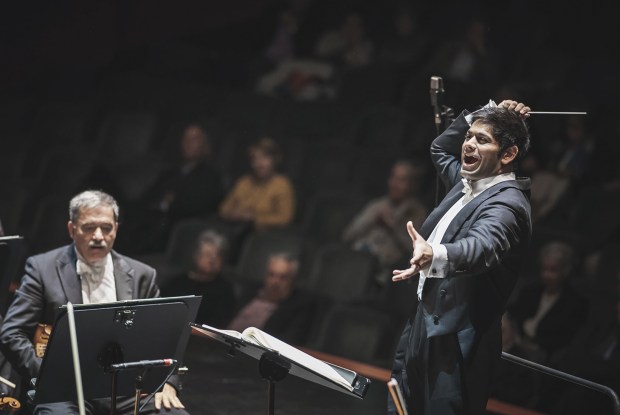
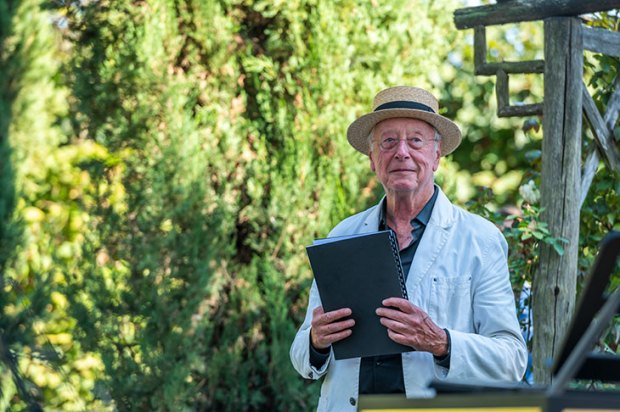
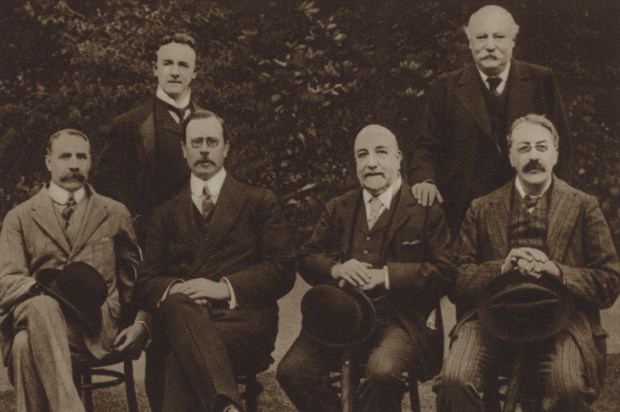
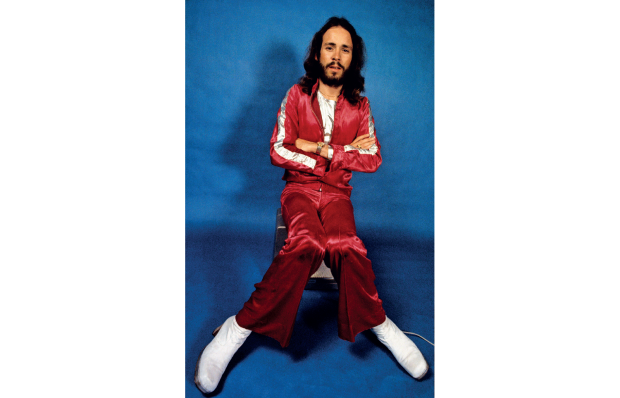
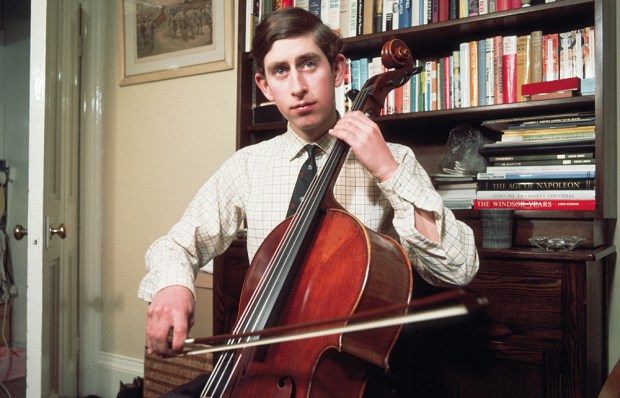
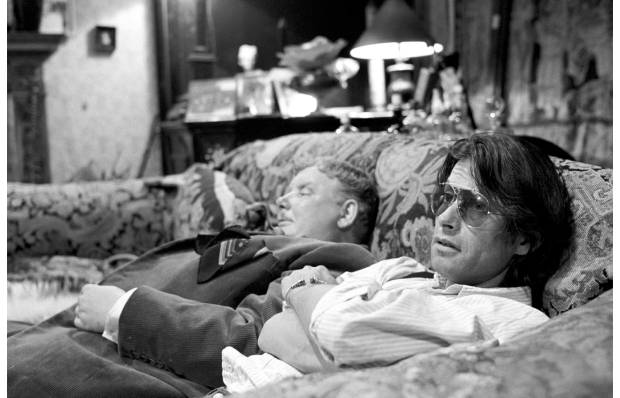






Comments
Don't miss out
Join the conversation with other Spectator Australia readers. Subscribe to leave a comment.
SUBSCRIBEAlready a subscriber? Log in